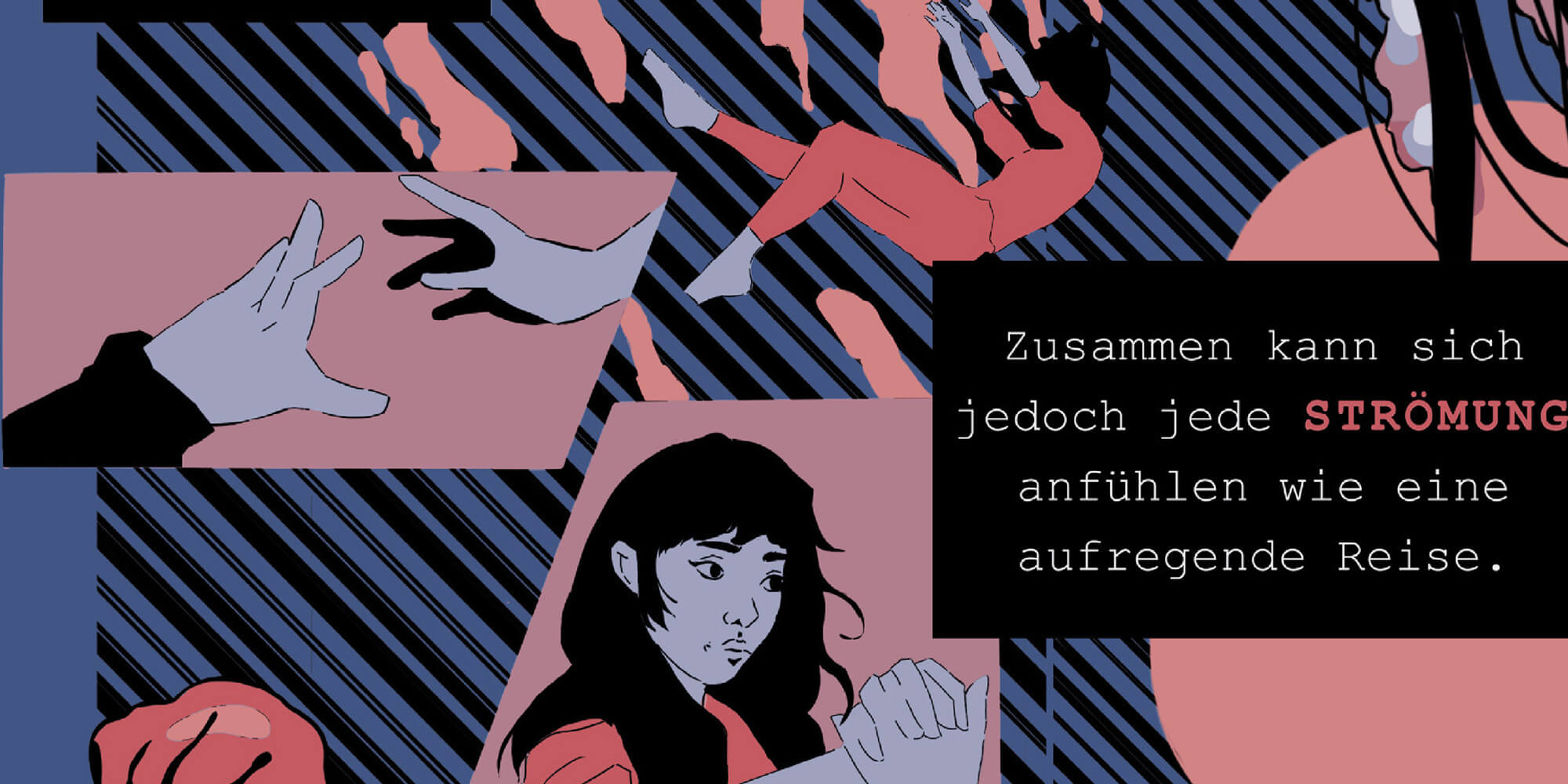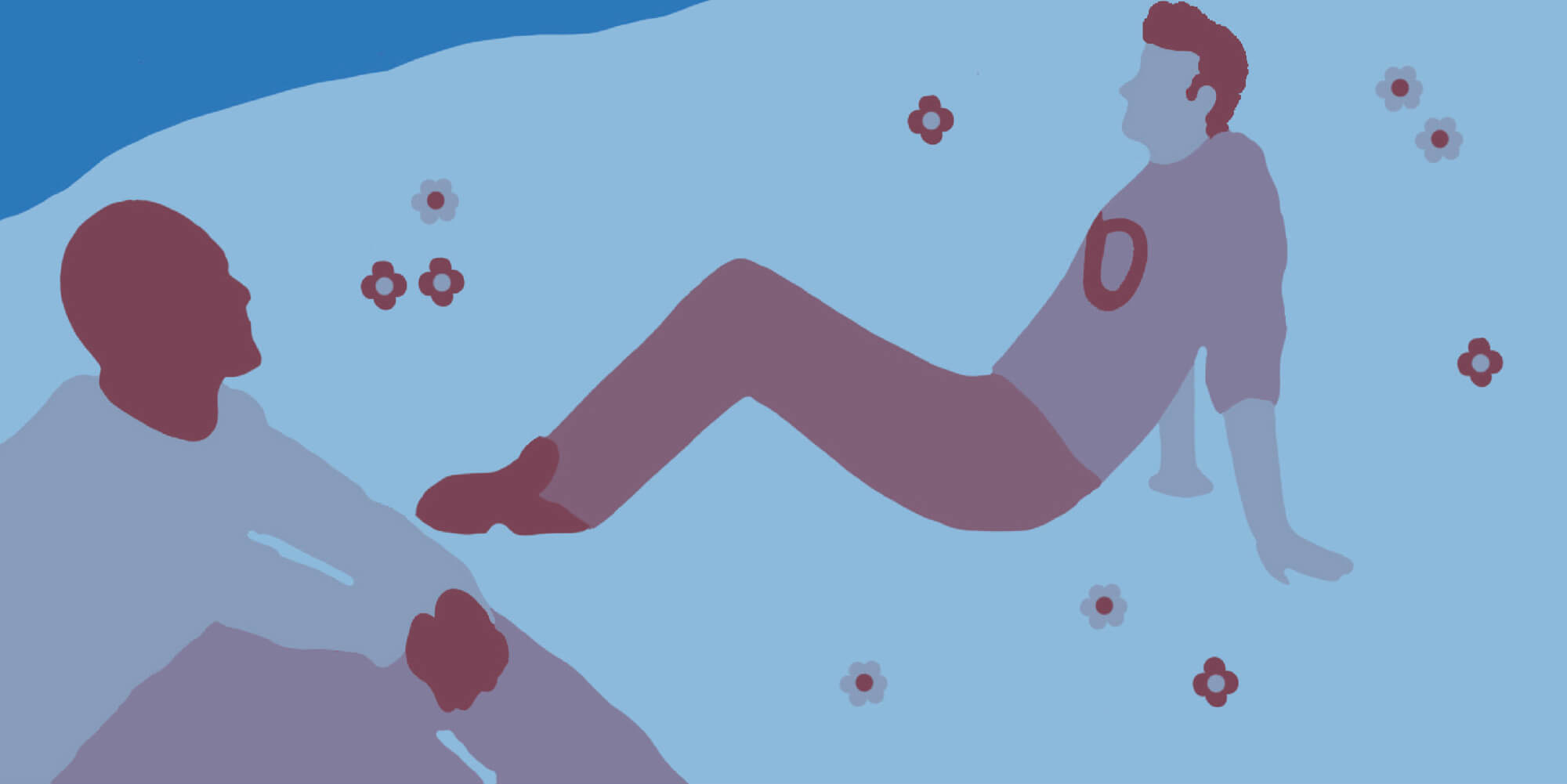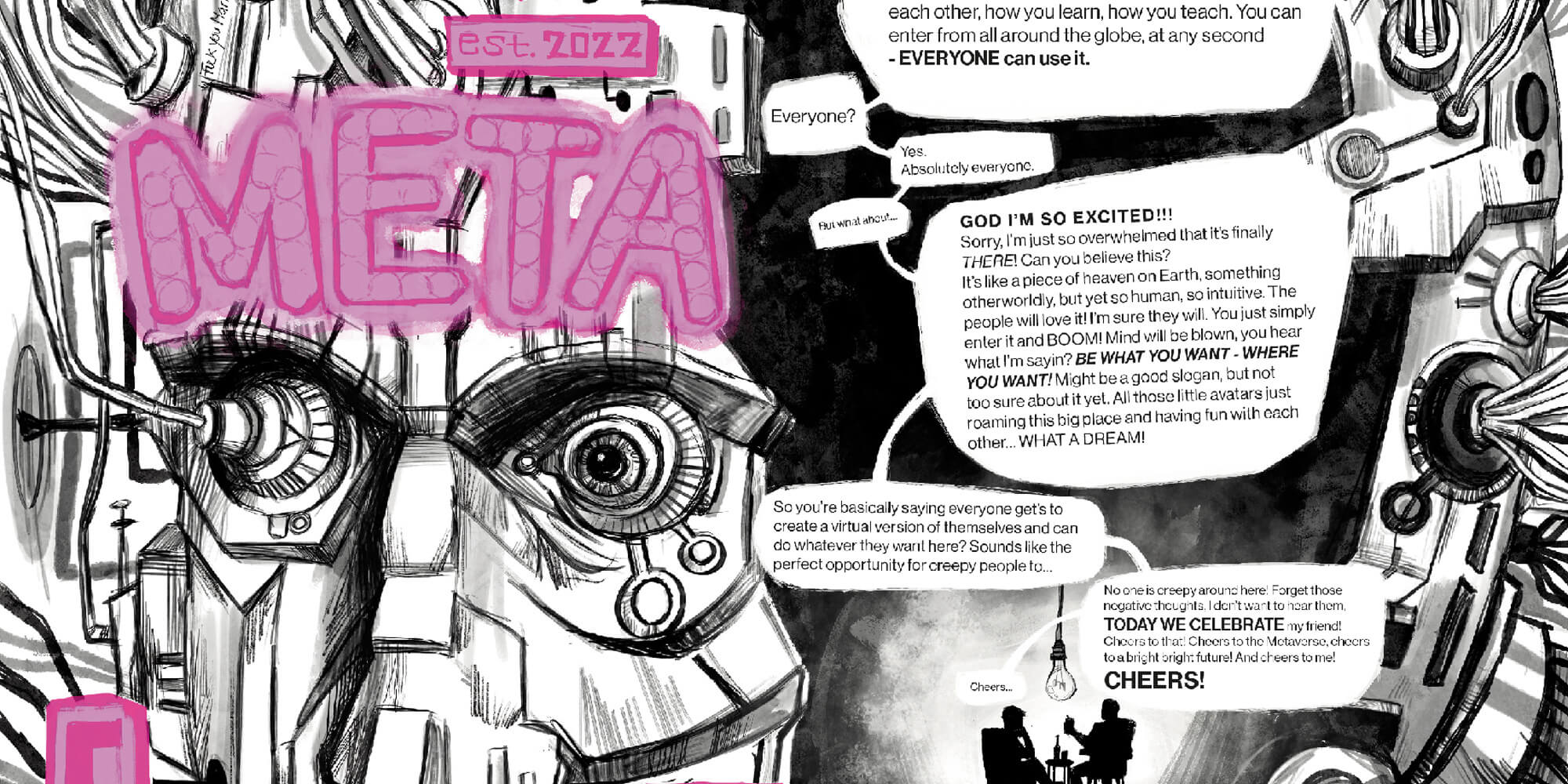In an era in which the concept of friendship may have to be reinterpreted, students at the Master School of Communication Design Linz are bringing comics and drawings to life.
Read more: Meet me laterTheir affinity for mobile devices makes it effortless for them to network with people from all continents. Generation Z is more familiar with the possibilities of digitization than any other generation before. Digital is not only an important part of their lives; the boundaries between real and virtual worlds are blurring in the everyday lives of this young generation. Their meeting points, their need for proximity and affection are also increasingly shifting to a maximally digitized world. Always striving to generate relationships on social networks like TikTok and Snapchat as well, it has become necessary to present one’s own life 24/7 online and as perfectly as possible. But all this also puts enormous pressure on the young people. How is it really going for them? What moves them and how do they deal with social expectations and political challenges? And above all, what does friendship mean to them in an increasingly digitalized everyday life?
In an era when the concept of friendship may need to be reinterpreted, students at the Master School for Communication Design Linz are bringing their comics and drawings on the theme of “Meet me Meta” to life with an augmented reality app. Their works are on display from March 17 – April 9 at the nextcomic festival in the foyer of the Ars Electronica Center, dedicated to stories about old, new and special alliances; close or distant, deep or superficial relationships that manifest in both spatial proximity and vast distance. Gen Z expresses its shift between worlds not only with its flexible use of language, but also with an enormous routine in switching between its virtual and real worlds. With their code word “meet me later,” they suggest a shift in their relationships along the timeline. But what else all do the circumstances in which digital natives have grown up mean? For the language and relationships of an entire generation? For their communication designs, and especially for “Meet me Meta”?
Flow by Anja Diepold
Life holds challenges that often feel unmanageable in everyday life. Friendship is an anchor that can provide support in turbulent times – whether in real life or in the metaverse. Digital Natives can still most readily relate to the connection and accompanying conflicts between real and digital relationships. So in their comics, they don’t just take up the obvious level, like the one between reality and fiction. They also try to address the interpersonal, emotional level of the Internet and the metaverse. Their works show the balancing act of nonverbal and real relationships that “Gen Z” has been doing since its first contact with the internet. The digital space is more than just a platform. It’s a home, a way to maintain contacts that would be lost in the stressful daily grind of growing older.
“Not only did we grow up with the Internet, but the Internet grew up with us. The fiction of previous generations has become reality for “Gen Z.” Our generation didn’t have to train itself to be agile in the World Wide Web. We young people are the discoverers of the Internet. The ones who shape it and change it.”

Utopia and Dystopia – Armin Reindl
Utopia and Dystopia deals with the unpleasant truth behind the use of digital media by younger generations and the question of whether the metaverse is a real step forward for humanity, or rather a dangerous distraction from the omnipresent climate crisis and the increasing power of large corporations. More and more people are having their entire existences controlled by the Internet, while reality is being neglected. Virtual life is gaining in importance with each generation. So is the Metaverse a utopia, a near-perfect place, or simply a tool corporations use to distract from our dying Earth in order to maximize their profits?
“Cyber space is constantly changing. Unlike in the analog world, there is minimal time between “generations” there, but each has different priorities and values: The mindset of Baby Boomers, Millennials and Digital Natives, that of the Myspace, Facebook and TikTok generations all contrast sharply with each other.”

Strobokopf – Elena-Mirja Jäger
In her class, she has observed that many of her fellow students are rather critical of the Metaverse: Some of the comics address the lack of transparency, the danger of losing oneself in social media and getting involved with people who cheat or hide behind a facade. There have even reportedly been instances where teachers have had to prompt to depict a slightly more positive view of things as well. In the end, the works turned out very differently and dealt with the topic of friendship rather on a meta-level, which no longer necessarily has a connection to the metaverse. This has shown Elena-Mirja Jäger that her generation does use new media on a daily basis and is also partly dependent on it, but has also recognized the dangers that this kind of networking brings with it.
“In this very moment of our lives when we really wanted to be with our friends every day, we had to do without personal contact for almost a whole year. It became clear to us that nothing in the world can replace an analog friendship.”

Feel like real life, amazing people and maybe even making a new friendship or two? Visit from March 17 – April 9 the nextcomic exhibition in the foyer of the Ars Electronica Center. Entrance is free! And by the way: On MO 20.3. at 18:00 the students’ projects will be presented in Deep Space 8K. – Meet you later!